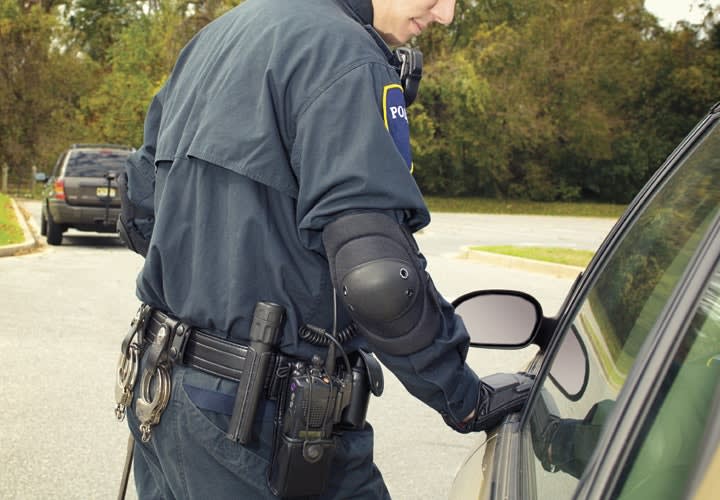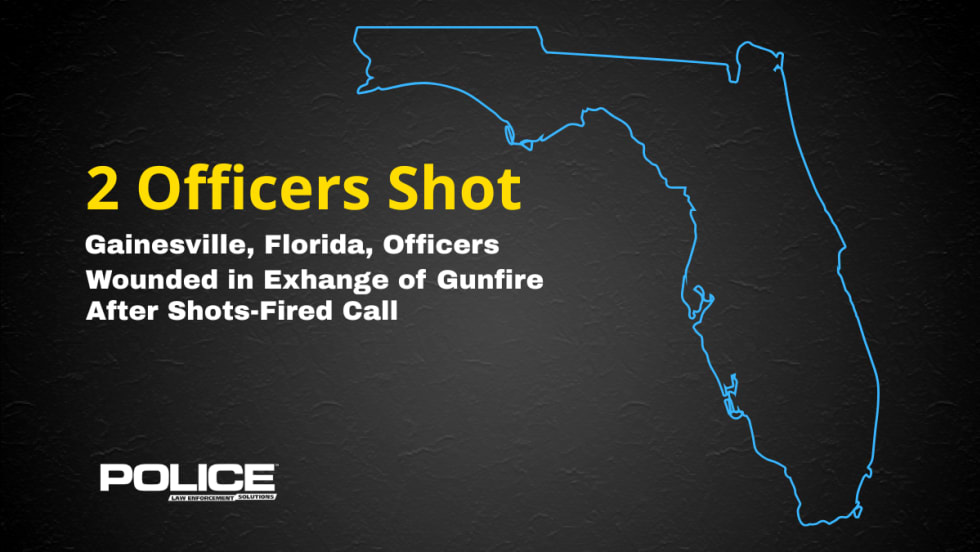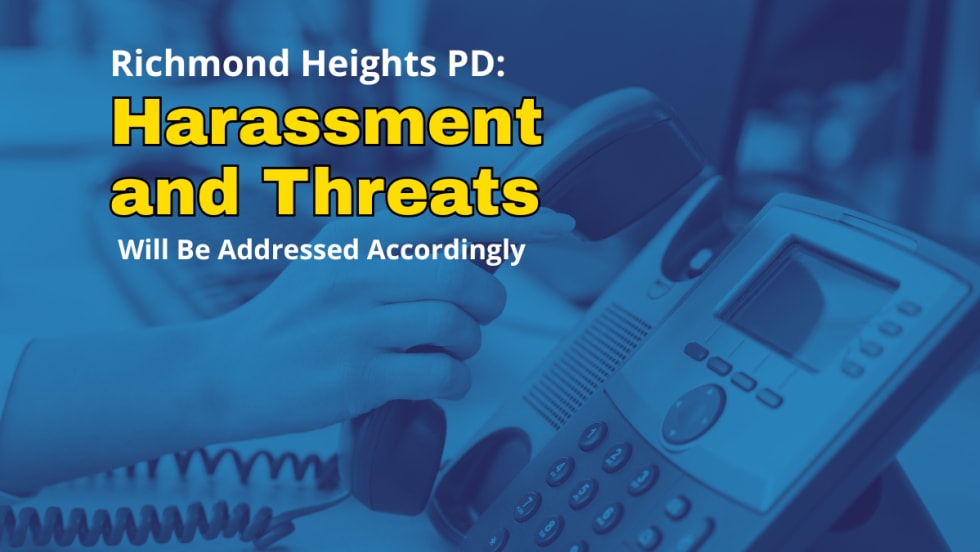Sovereign citizens believe that the government has no right to tax them, issue licenses, or do many of the other things that the average American citizen has accepted as the roles of government. They also believe that the only legitimate law enforcement officer is the elected sheriff.
Last month near Spokane, Wash., a sheriff's deputy in an unmarked car was driving east on I-90 when he took notice of a red pickup truck in front of him that appeared to have invalid or altered license plates. The deputy called in the plate number and received notice that there was no record of the plate.
Backup rolled. Marked cars followed the truck until it pulled into a driveway. There it was boxed in by patrol cars and a standoff began, as the truck's occupants refused to cooperate with the officers and the officers wisely chose not to approach the vehicle. SWAT was dispatched. The driver and passenger of the truck were eventually cut from their seat belts and taken into custody.
Calling SWAT may seem like an overreaction to an expired or fake license plate. But the Washington officers were smart to do so.
They were dealing with members of an anti-government movement called "sovereign citizens." Sovereigns believe that the government has no right to tax them, issue licenses, or do many of the other things that the average American citizen has accepted as the roles of government. They also believe that the only legitimate law enforcement officer is the elected sheriff.
For the most part sovereigns and their beliefs were not a major concern for law enforcement until two years ago. That's when two West Memphis, Ark., officers—Brandon Paudert and Bill Evans—were murdered by a father and son team of sovereigns during a drug interdiction traffic stop. The sovereigns were later killed in a fierce gun battle in a nearby Walmart parking lot.
The West Memphis cop killings and the subsequent shootout put the sovereign citizen movement on the radar of many law enforcement officers, but there are still numerous officers who are not aware of the dangers presented by this philosophy and how to recognize its adherents.
Understanding Sovereignty
Crimes committed by sovereigns often include relatively minor offenses such as the manufacture of fraudulent license plates, registration cards, or currency. However, as this movement has quickly gained traction across the country with the assistance of the Internet and sovereign seminars promising an assorted array of "get rich quick" financial remedies, mortgage fraud, and banking fraud, threats against law enforcement officers and judicial officials by sovereigns are becoming more common place.
The tactics used by sovereigns won't always be violent. More often, a sovereign will use document filings such as liens and lawsuits against law enforcement in an attempt to overwhelm and confuse you. Due to the evolutionary nature of police work in the United States, you need to equip yourself with knowledge to protect yourself physically, financially, and legally from these criminals and their bag of tricks aimed at disrupting the criminal justice system.
Sovereignty and sovereign citizens have existed in the United States for nearly 50 years in various forms. The roots of the sovereigns can be found in the Posse Comitatus movement of the 1970s.
"Sovereign citizen" is a broad, general term that is often applied to any individual person or group that does not believe that the laws of the United States or the state laws apply to them. In other words, they are beyond the jurisdiction of law enforcement authority. The term "sovereign citizen" should be viewed as an umbrella under which you will find thousands of loosely organized groups or individuals that share one basic ideological principle but approach it through different paths.
Extreme Ire
Some groups or individuals use their sovereign claims in an attempt to avoid legal trouble and circumvent common traffic laws and statutes. Others believe they are at war with the United States and are willing to use deadly force against anyone they perceive as standing in the way of their sovereign rights. Violent sovereigns are a clear and present danger to law enforcement, and you need to be prepared to deal with them safely and effectively.
While each sovereign group holds its own specific creeds, conspiracies, and focal points, what they all have in common is an extreme ire for government and its agents, and particularly law enforcement. Sovereigns generally subscribe to a loose anarchist ideology, holding firmly to notions of archaic common law doctrines, or no law at all.
Sovereigns believe in an "unimpeded God-given right to travel," and therefore say that no officer, under any circumstance, has the right to obstruct their travel. That makes traffic stops involving sovereigns extremely perilous for officers.
Divided by Race
American sovereign groups are commonly delineated along racial lines. White American sovereigns tend to be concerned with the U.S. Constitution and state constitutions, and their interpretations of those documents in a historical context. African-American sovereigns often lean toward Moorish history and African culture as the basis of their sovereignty. Religion, particularly the Moorish Science Temple, may also play a role in racial division and recruitment or indoctrination within a particular sovereign group.
While there is often noticeable racial division among sovereign groups, it is important to remember that sovereign citizens all have the same basic beliefs and will share their criminal tactics with each other. Sovereign citizens, with few exceptions and despite their differences, will choose to unite against their one common enemy: the government and its agents.
Pseudo-Legal
When attempting to understand how a group or individual comes to believe in sovereignty and exemption from statutory law, you must first understand the foundation of the movement.
Sovereigns take legitimate historical events and obscure common law and twist and change them to fit their particular claims or assertions. Their hope is that the ensuing confusion results in law enforcement and/or the judicial system's unwillingness to effectively deal with them. The fact that most of their arguments and documents contain a slight hint of factual basis and an overwhelming amount of pseudo-legal language, including the mention of various acts, amendments, and treaties, only adds to the confusion.
One example common to the philosophies of many sovereigns is the Theory of Redemption. This theory claims that the United States went bankrupt in 1933 when it chose to no longer use the gold standard to back up its paper currency. Needing collateral to trade and conduct commerce with other countries, the United States began to use citizens as collateral to ensure the value of its money. Subsequently, secret bank accounts, containing millions of dollars, were supposedly established by the United States Treasury Department on behalf of each citizen, or "strawman," used as collateral. Redemption is used as a gateway by sovereigns to commit various fraudulent acts all in an attempt to "redeem their strawman" and access these non-existent secret Treasury accounts to satisfy various debts, including mortgages, cars, and credit cards.
Another ideological principle of sovereignty is the 14th Amendment. Passed in 1868 and intended to galvanize and unify the country as part of the post-Civil War Reconstruction Acts, sovereigns view the 14th Amendment as another example of government trickery. They believe that the United States government illegally passed the Amendment and "tricked" all the citizens of the state republics, for example the State Republic of North Carolina, into renouncing their state citizenship and agreeing to become federal "corporate" citizens through the acceptance of government benefits.
Sovereigns believe that the federal government forced the citizens of the former state republics into obtaining birth certificates, Social Security cards, driver licenses, vehicle registration cards, and other legal documents. These "binding contracts" are viewed as null and void by sovereigns, and as such, will usually not be obtained or carried by sovereign citizens.
Sovereigns and Traffic Stops
Regardless of the particular vein of sovereignty encountered by law enforcement officers, brushes with sovereigns can be extremely predictable, and successful and safe interactions with sovereigns can be accomplished if you follow a few guidelines.
The first thing you may notice will be a fraudulent registration plate affixed to a vehicle. The plate may or may not look like a slightly altered version of a legitimate registration. It will most often contain words like "Indigenous," "Sovereign," "Diplomatic," "Exempt," or "Private Property."
The plate will sometimes identify the particular sovereign group its owner is associated with such as "Washitaw," "Moor," "Mu'ur" (variation of Moor), "Little Shell Pembina," or "Nuwaubian." Sovereign license plates often contain images of a foreign flag, the United Nations symbol, bar codes, or hieroglyphic writing. Identifying these initial sovereign indicators, and mentally preparing for what's to come, is critical to a successful and safe encounter.
When you stop a sovereign citizen, the encounter will be unlike any of the thousands of vehicle stops performed in your career. While you are conditioned to motorists being frustrated or even confrontational about the reason for the stop and any possible penalty, sovereigns utilize a unique mix of bullying, intimidation, and confusion to coerce their way out of the stop.
You may encounter sovereigns who refuse to roll down their window or only roll it down a matter of inches and then slide you a "Public Servant Questionnaire," asking for your full legal name, home address, and other sensitive biographical information. Sovereigns, when stopped, may ask you to present them with your signed oath of office or to recite that oath. The sovereign will often attempt to utilize clever parsing of words to differentiate between a "vehicle" and a "conveyance," or "driving" vs. "traveling," all in an effort to confuse and intimidate you.
A sovereign may even present you with a bill for his time when you contact him. Sovereigns have been known to mention their "fee schedule" to officers during traffic stops, and will advise you that these self-created astronomical rates will be billed to you, all depending on the length of the stop.
Unlike the average motorist, sovereigns will not comply with simple instructions to produce a driver's license, registration card, or proof of insurance. They will argue with you about jurisdiction and the "victim" of the alleged traffic offense.
Sovereign citizens also believe their names are private property and cannot be used, for any reason, without their expressed consent. They will view you writing their names on a citation as a copyright or trademark infringement and, consequently, attempt to conceal their full names when asked. As a result of their belief that law enforcement has no authority over them in any situation, they may become violent if asked to exit the vehicle or submit to an arrest.
And expect to be filmed. Sovereigns often video-record their interactions with law enforcement officers in hopes of intimidating officers to not enforce the law. Some of these encounters are live-streamed via the Internet to local like-minded sovereigns, and some of these people could present a possible threat to your safety.
While it might not always be possible to identify a sovereign citizen based on vehicle or registration plate indicators, you should be aware of certain key words that sovereigns are likely to use when you contact them. The mention of the following words or sentences is usually an indicator that you are dealing with a sovereign citizen:
While the traffic stop will be unlike any other you experience, you should remember that procedure and enforcement should remain consistent. Priority number one is safety. You need to have the right mindset going into the stop and be prepared for the tactics employed by sovereigns.
Once you identify the individual as a sovereign, it's important to not get wrapped up in the copious amount of paperwork he will produce during the encounter. Identify the paperwork as sovereign propaganda and of no significance to the stop and maintain a high level of officer awareness and safety. Decisive decision making and enforcement of the law is the best way to ensure maximum officer safety and send a clear message that these sovereign tactics are ineffective in your particular jurisdiction.
Finally, call for backup if you sense any physical threat coming from a suspected sovereign citizen. While violent encounters with adherents of this philosophy are rare, they can be sudden and deadly.
Paper Terrorists
Rumors and stories are currently circulating among many police agencies nationwide that sovereign citizens will initiate lawsuits against officers, departments, cities, and counties, and they will file liens against anyone who refutes their claims of sovereignty. Some sovereigns might even issue bogus-looking documents stating they are indictments or arrest warrants. For the most part, this is true. This most common and effective tactic used by sovereign citizens is called "paper terrorism."
The goal for sovereign citizens using this tactic is to initially frighten a law enforcement officer away from even initiating a stop on sovereigns, let alone making criminal charges against them. They want the threat of a lawsuit or lien to help insulate them from local, state, and federal rules, regulations, and laws. They aspire to clog up the court system with as much paperwork as possible and hope that the end result is no one wanting to deal with them because they are such a nuisance.
Sovereigns will usually add up the amount of time they were "inconvenienced" or detained, the value for copyright or trademark infringement for writing their name on a citation and, per their fictitious fee schedule, decide on an exorbitant figure for a lawsuit. These lawsuits are often filed in federal or state court and may be served on an officer at his home or agency. While meritless, the lawsuits need to be addressed through the proper channels and handled by your respective police, city, county, or state attorney in a timely fashion.
Sovereigns might also place a lien on an officer's property as retribution. While the sovereign never plans on collecting, the lingering effect on the officer could be devastating if not addressed immediately and handled properly. It is imperative to continuously check your credit for signs of illegal activity and to also check with the Clerk of Courts and Register of Deeds offices in your particular county for sovereign filings against you.
Sovereign citizens can and will be violent toward law enforcement. They do not believe in the legitimacy of the government, the validity of laws, or the authority to enforce any laws against them. This is completely different from the "typical" criminal that you deal with on a regular basis.
The typical criminal runs away or resists because you have the authority to take him or her to jail. Sovereign citizens resist because they believe that you are violating their sovereignty and that they are allowed to defend themselves using deadly physical force.
Sovereigns may not always be violent. It's impossible to know when they'll decide to use force against you. But you need to be prepared and you need to understand the mentality of this movement. If you educate yourself and the public on the multitude of fraudulent scams and tactics used by sovereign citizens, and you continue to maintain a high level of officer safety when dealing with them, you will be as effective as possible in combating this growing concern within the law enforcement community.
Editor's note: At press time two Louisiana officers—Deputies Brandon Nielsen and Jeremy Triche of the St. John the Baptist Parish Sheriff's Office, Louisiana—were killed in an encounter with men suspected of being members of Posse Comitatus, a splinter group of the sovereign citizen movement.
Rob Finch and Kory Flowers are detectives in the Criminal Intelligence Unit of the Greensboro (N.C.) Police Department. For the past three years, they have investigated numerous sovereigns, leading to successful prosecutions at both the state and federal level.
Related:
Sovereign Citizens Linked To La. Deputy Killings
Wash. 'Sovereigns' Arrested After SWAT Standoff












